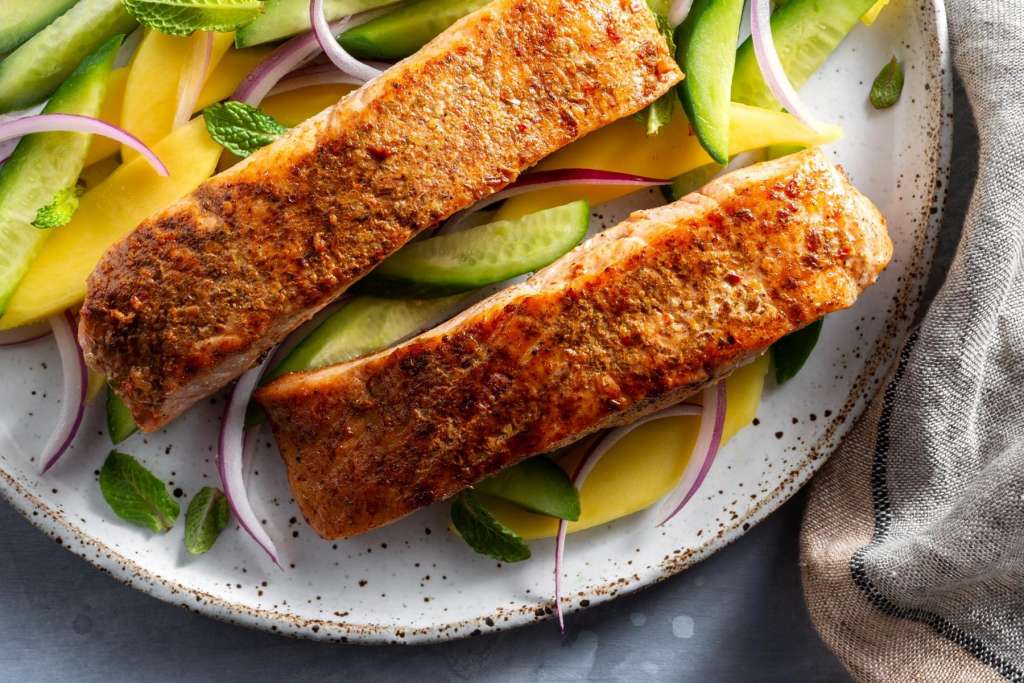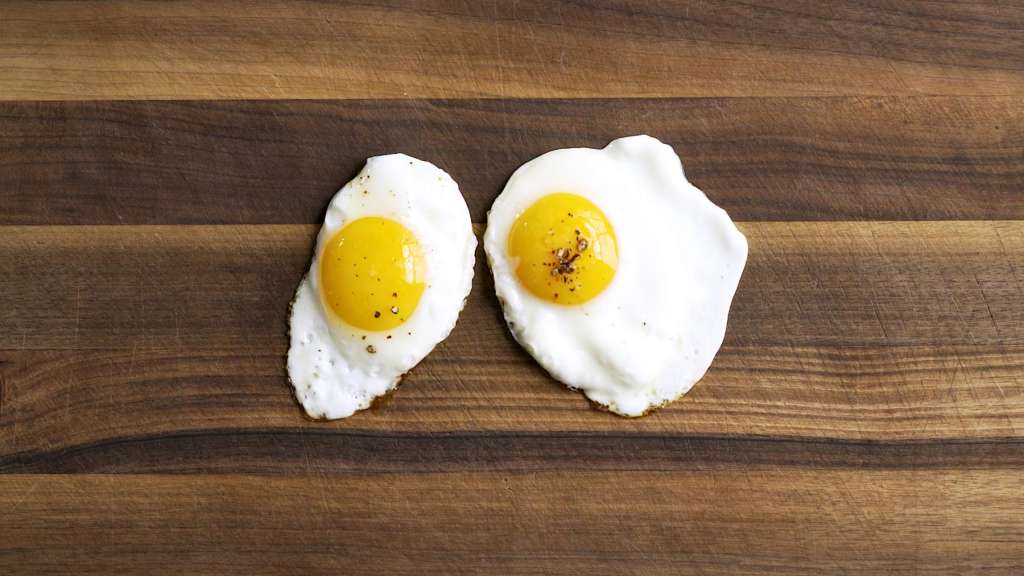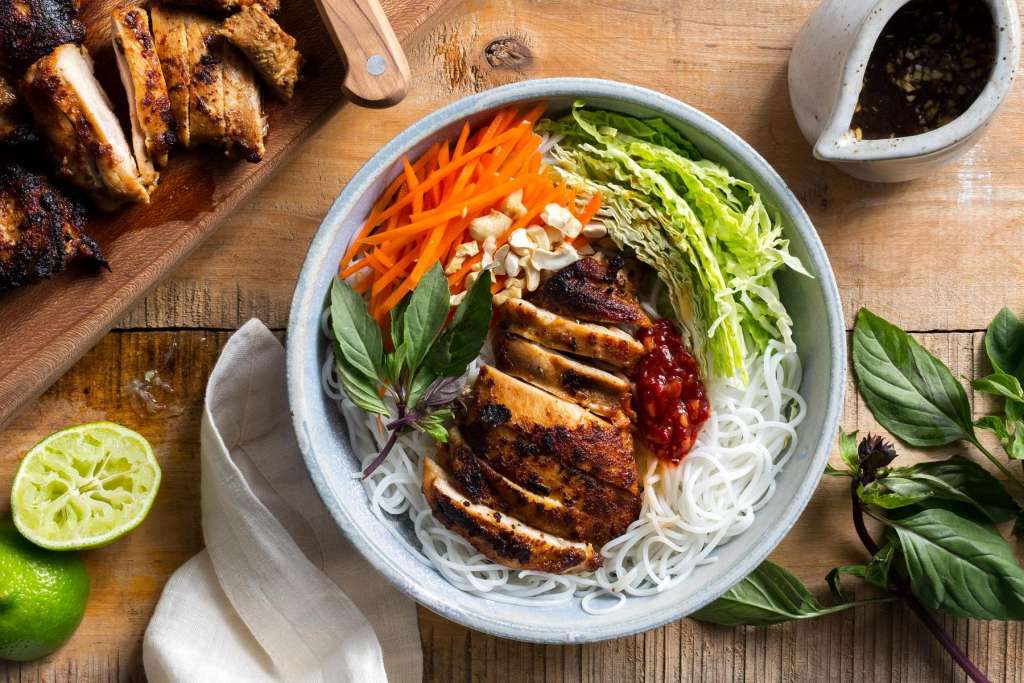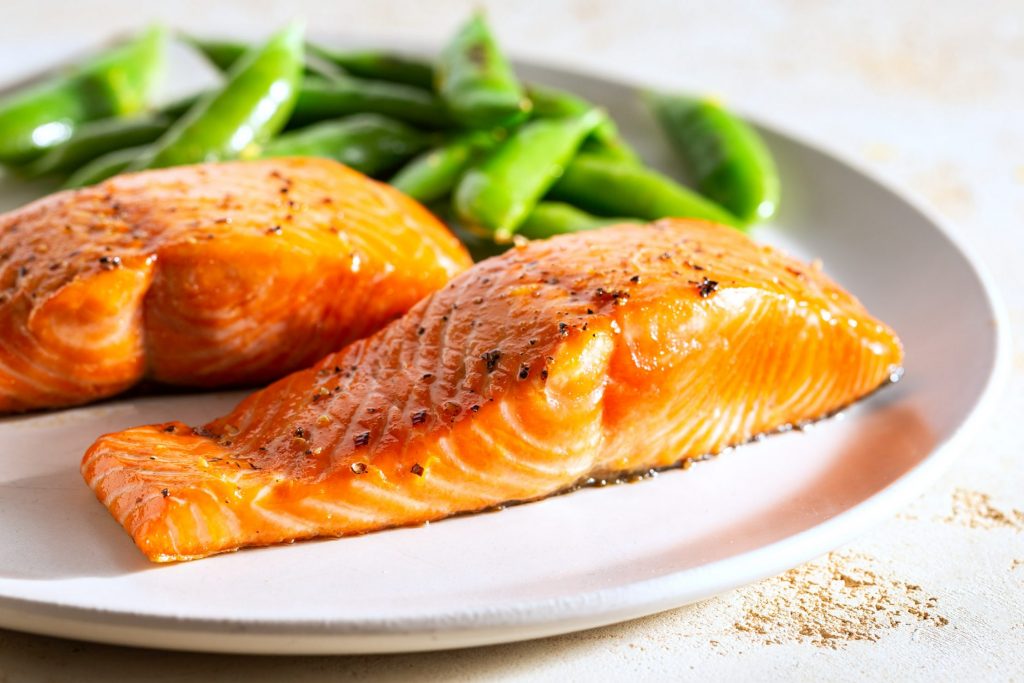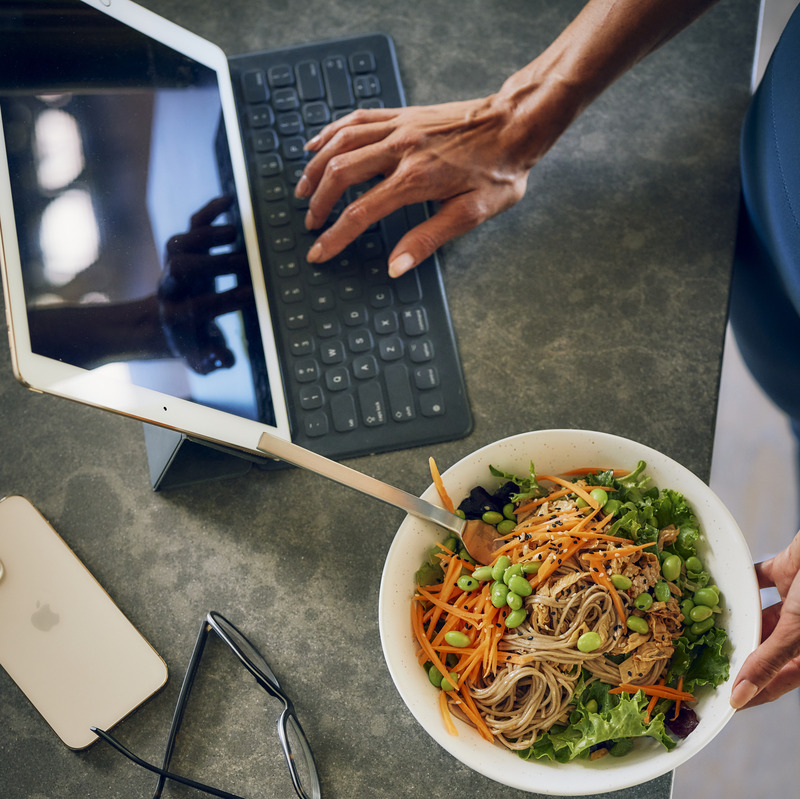Tips for Sourcing Sustainable Food
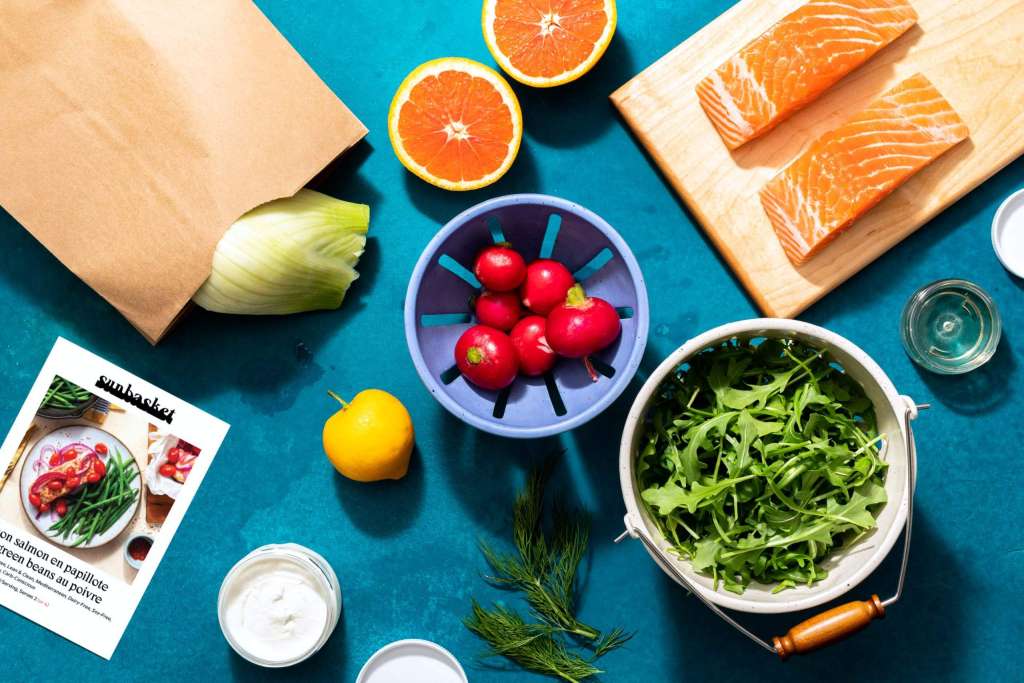
We all want to do more to help the environment, and using sustainable food sources is a surprisingly convenient (and delicious) way to do that. Picking well-sourced ingredients, eating more plant-based meals, and being mindful of packaging helps to protect our ecosystems and reduce greenhouse emissions. A meal kit delivery service is an easy way to incorporate more food sustainability into your everyday routine.
The importance of sustainable foods
What is sustainable food and why is it important? Sustainable practices reduce waste as well as negative human impacts on the environment. Here are some benefits of sustainable food.
Healthy air, land, and water. One of the primary goals of finding sustainable food sources is to reduce chemicals that are harmful to our food supply and ecosystems. Proper farming practices help prevent harming bees, birds, and other wildlife. Sustainable fishing practices protect species viability and healthy populations in the future.
Eco-friendly packaging. The majority of food packaging isn’t recyclable, and much of it ends up polluting waterways and filling up landfills. Ocean plastic pollution is such a huge problem that the U.N. has declared it a planetary crisis. Products found in grocery stores are usually packaged in multiple layers with materials such as plastic, glass, and metal. Alternative food sources level up their commitment to sustainability by using recyclable and compostable materials.
Increased food security. Eating sustainable foods contributes to food security in a couple of different ways. First, the methods used to produce sustainable food enrich the soil, rather than deplete it, ensuring our ability to grow food in future. Additionally, eating in a way that encourages minimal carbon emissions lessens global warming caused by the greenhouse effect. The food choices we make today play a key role in preventing rising temperatures and weather conditions that threaten our global food supply.
What makes organic food sustainable?
Organic food is a major part of the sustainability movement. But you might wonder what “USDA Certified Organic” really means. According to the USDA, it’s meant to “foster cycling of resources, promote ecological balance, and conserve biodiversity.” Seeing the organic label on your food means that ingredients were grown according to federal guidelines, including:
- No synthetic fertilizers or pesticides
- No antibiotics or hormones used in animals
- No genetically modified ingredients (GMOs)
- No irradiation
Not using chemical pesticides when farming ensures that beneficial insects like pollinators can survive and thrive in doing their important work.
The state of food waste in America
It takes a lot of natural resources to produce and ship food in the U.S. Unfortunately, 40% of all food in America is thrown away each year, totalling $408 billion in losses. That’s the equivalent of every person in the country throwing out one pound of food each day.
Here are some more shocking food waste facts:
- The United States discards the most food out of all countries in the world.
- Food takes up the most space in U.S. landfills.
- Meal kits are proven to result in less food waste compared to grocery store meals.
How to reduce food waste
Learning how to reduce food waste is a great first step in creating a more sustainable food supply chain. Avoid letting your groceries spoil by taking the following steps:
- Plan meals in advance and shop with ingredient lists.
- Preserve produce by freezing, pickling, fermenting, and canning.
- Make your own broth with meat bones and vegetable scraps.
- Use leftover ingredients in soups or casseroles.
Another way to reduce food waste is to order meal delivery kits because you get perfectly proportioned ingredients for meals. But not all services are created equally. Follow these tips to pick the most sustainable solutions available:
- Opt for organic produce and proteins.
- Look for packaging that’s reusable, recyclable, and/or compostable.
- Choose meals based on seasonal ingredients, since they won’t need to be shipped from distant locations.
With the right meal delivery service, you’ll not only enjoy healthy and tasty meals, you’ll also reduce food loss on a regular basis and contribute to fewer greenhouse gas emissions.
Do meal kits help reduce food waste?
A University of Michigan study showed that getting ingredients from a grocery store generates 33% more greenhouse emissions than having meal kits delivered, even considering meal kit packaging. Why? One reason is that meal kits provide the exact amount of the ingredients you need to make the meal, reducing all the emissions caused in transporting food that doesn’t get eaten.
For example, say you want to make a roasted beet salad for two people. Your meal delivery kit would arrive with one or two beets in it. But if you gathered ingredients at the store, you’d buy a bunch, leaving you with leftover beets which, without a plan, can easily spoil in your refrigerator.
Meal delivery businesses also have far less food waste in the supply chain than grocery stores. Ingredients don’t sit on grocery store shelves waiting for people to buy them. Meals and the exact amounts of ingredients needed are ordered in advance and delivered directly with much less food being thrown away in the process.
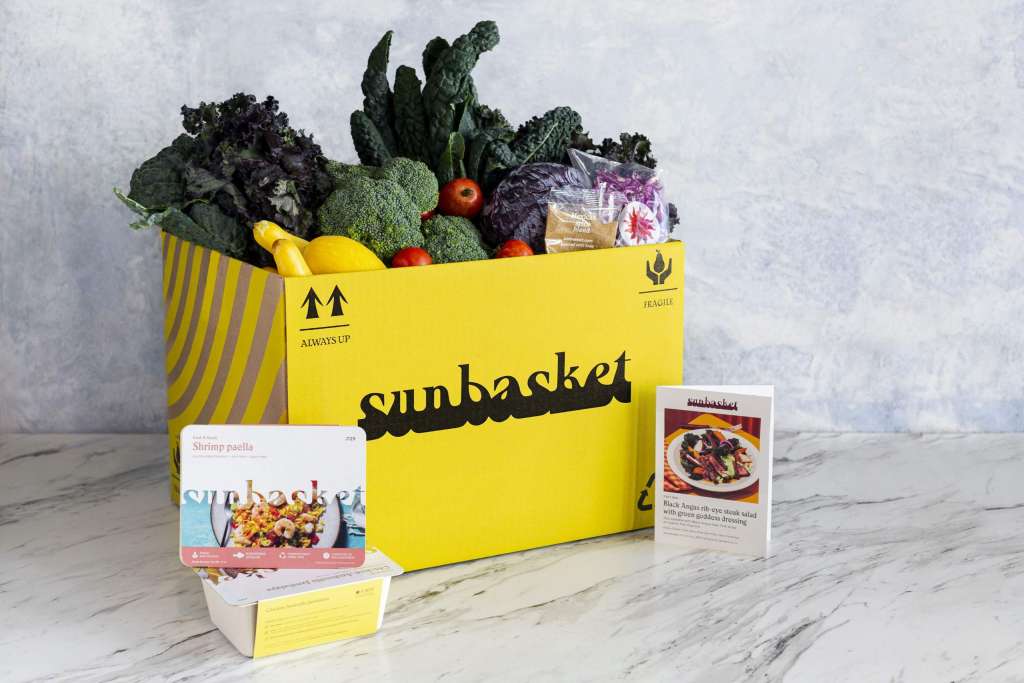
How Sunbasket helps you eat more sustainably
Looking for a meal kit delivery service that offers a comprehensive commitment to sustainability? Healthline rates Sunbasket “the most eco-friendly meal kit service.” And Insider reports, “Sunbasket will impress anyone who takes sourcing seriously and wants to eat more responsibly and sustainably.” Sunbasket has a distinct set of ingredient standards and values that guide our practices.
USDA certified organic produce, and more: We use organic fresh produce, eggs, tofu, yogurt, and milk in all our meals 99% of the time. (We shoot for 100% but in rare cases they’re unavailable). Organic proteins are also an option on most meals.
Carefully sourced meat and seafood: We only use seafood that is recommended as Best Choice or Good Alternative by the Monterey Bay Aquarium Seafood Watch® program, and all our fisheries are certified by the Marine Stewardship Council (MSC). Our meats and poultry are always free of antibiotics and hormones.
Low-impact packaging: Nearly all Sunbasket packaging is recyclable, compostable, or repurposable and made with upcycled materials whenever possible.
Want to eat more sustainably with delicious, healthy meals? Sunbasket meal delivery is a great place to start. Join us!

